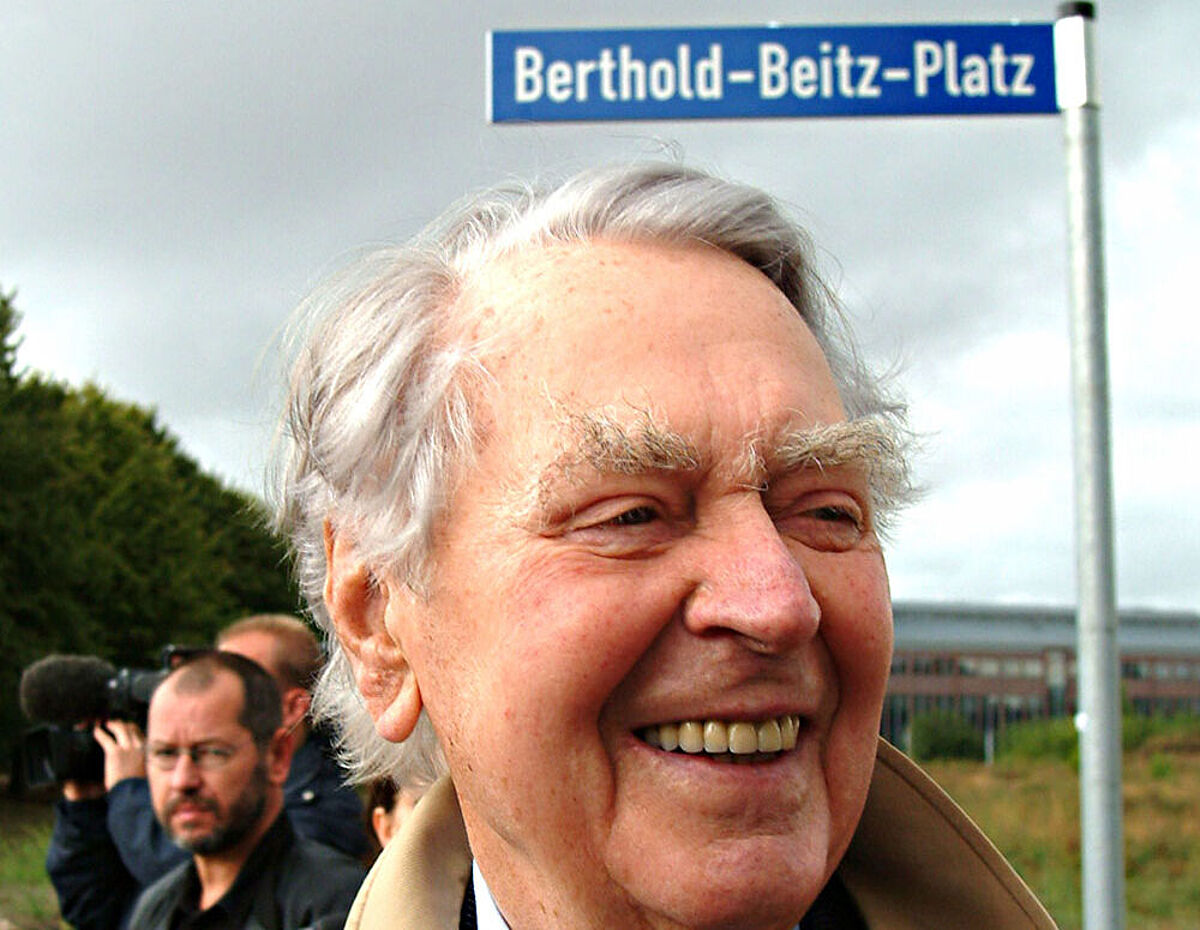He managed Krupp, Germany's largest steel producer, for many years: Who is Berthold Beitz?
The German industrial executive joined the Krupp Steel Company, which had been the "nation's gunsmith" in both wars, in 1953 and quickly managed to turn the company into an international business.

German industrial executive Beitz was born in Demmin/Pomerania, the son of a police officer. After graduating from high school, he did an internship at Stralsunder Bank at the age of 20.
He returned to his hometown for a short time in 1937, worked as a bank branch manager, and then moved to the Shell Mineral Oil company in Hamburg.
Shortly before the outbreak of World War II, Beitz married Else Hochheim (they had three children).
He did his military service in the Polish Governor General's Office in 1940, and a year later he was appointed to the Karpatenöl AG company near Lemberg. While carrying out this duty, he saved many Jewish and Polish prisoners of war from being sent to concentration and extermination camps.
Berthold Beitz, one of the leading industrialists in postwar Germany, was born on September 26, 1913 in Zemmin/Pommerania. He was the head of the Krupp steel conglomerate beginning in the 1950s. He was credited with helping to lead the re-industrialization of the Ruhr Valley and rebuilding Germany into an industrial power. In July 2013, Beitz died at age 99 at his holiday home on the island of Sylt off the northern coast of Germany.
In 1945, Beitz was sent to the retreating eastern front as a sergeant major, and when the war ended, he managed to move to Lüneburger Heide. In 1946, the British allies appointed Beitz, who had reached the age of 32, as chief of the occupation zone insurance office. After warming up to this foreign subject, Beitz was appointed general manager of the insurance company Iduna-Germania in Hamburg three years later.
In 1953, a new workplace was opened for Beitz at the Krupp Company in Essen. At the request of Alfried Krupp von Bohlen und Halbach, Beitz was appointed general manager of the large steel company. He took over this enterprise, which had been largely destroyed, as part of the Allied forces' policy of "taming" large industrial companies.
To ensure Krupp's redevelopment, Beitz turned his attention to foreign markets. While doing this, his work in Eastern Europe during the Second World War was very useful.
Expansion After the death of Alfried Krupp in 1967, under the management of Beitz, the most powerful man in the Krupp company, the company's activities were dispersed into several different sectors. In addition to mining, which was its most important branch as before, the company also focused on future-oriented technologies such as electrotechnics, construction of nuclear power plants, chemistry, and drinking water preparation facilities.
As a result of the mining crisis, the company fell into a monetary crisis in 1967, which was prevented by the Bund und Land Nordrhein-Westfalen guarantees and appropriate bank loans. In response to the demands of the funders that the company be converted into a capital company and rationalized, Beitz forced Krupp to be registered in the commercial register in 1968 and to transfer the company's capital (half a billion DM) to the Alfried Krupp Foundation. Although Beitz agreed to chair this foundation, he resigned as chairman of the board. Two years later he took over the chairmanship of the supervisory board from Hermann Josef Abs.
Beitz, an expert in sailing and one of the organizers of the Munich Olympic Games, was elected a member of the International Olympic Committee (IOC).
The following years were marked by disagreements between Beitz and the frequently changing directors responsible for the management.
In the face of the company's ongoing economic difficulties, Beitz sold 25.01% of his shares to Iran for the first time in 1976, abandoning the company's 165-year-old principle and opening the family business to foreigners, but the tense situation could not improve. Beitz's attempts to merge with Thyssen in 1983 and Klöckner in 1984 failed.
Beitz's administration was increasingly criticized for its lack of decisions and visions for the future. Beitz, an avid art collector (his special interest is expressionist painting), resigned as chairman of the supervisory board in 1989.
